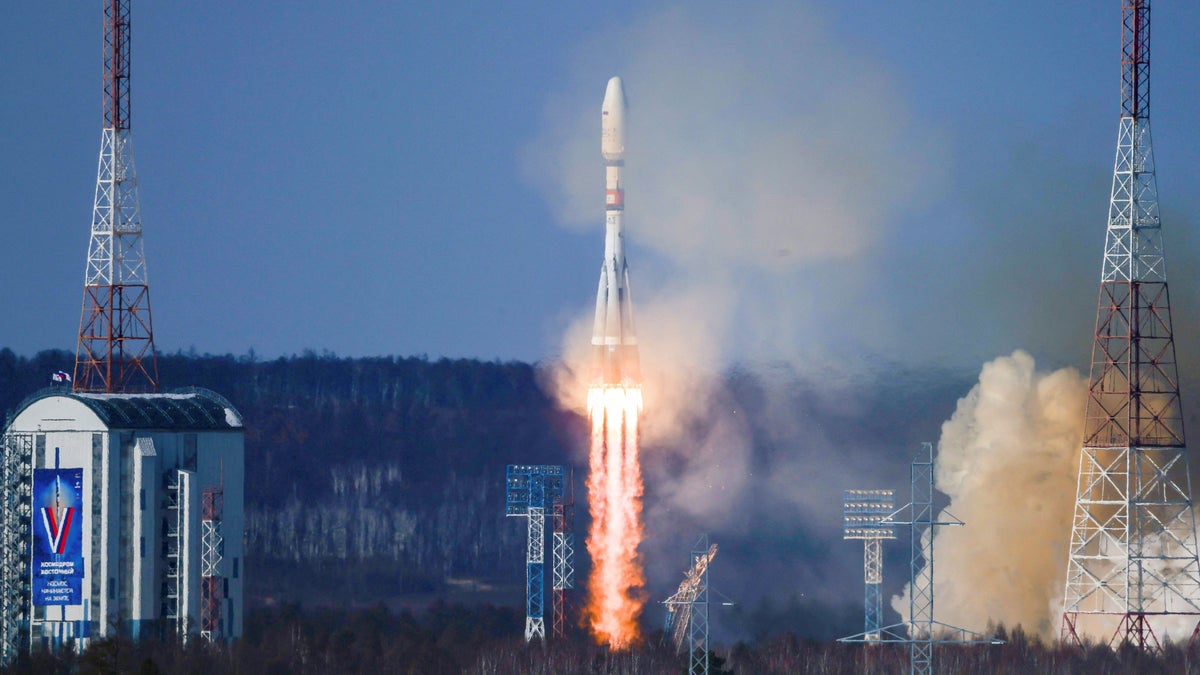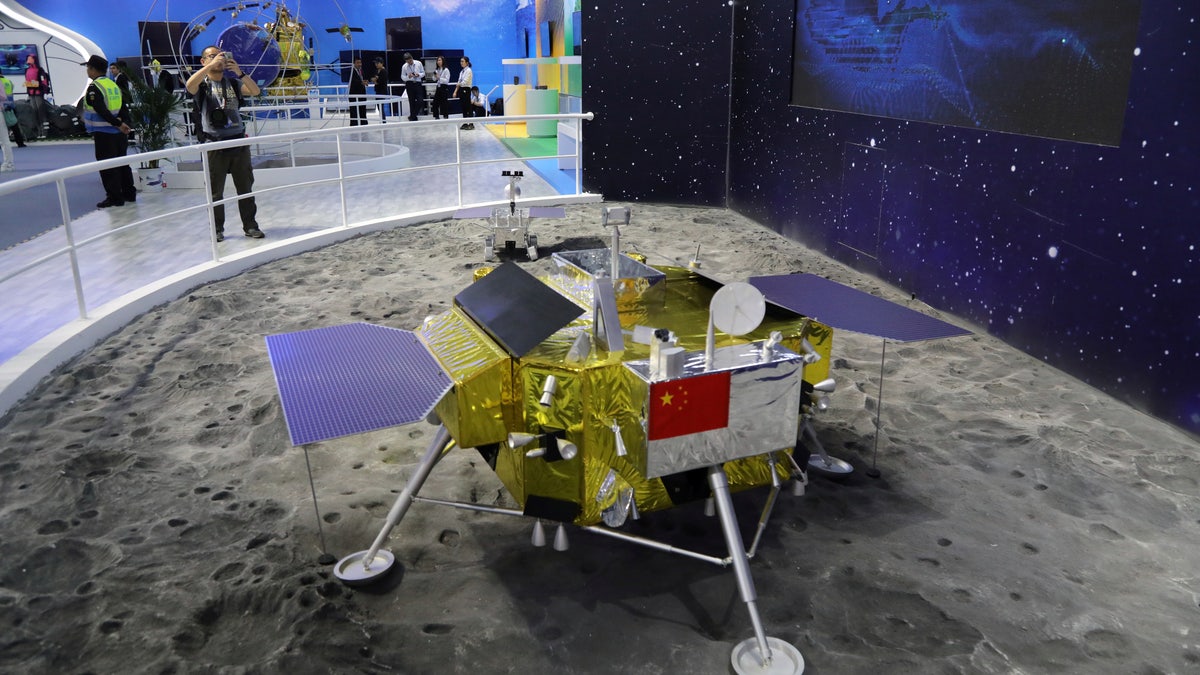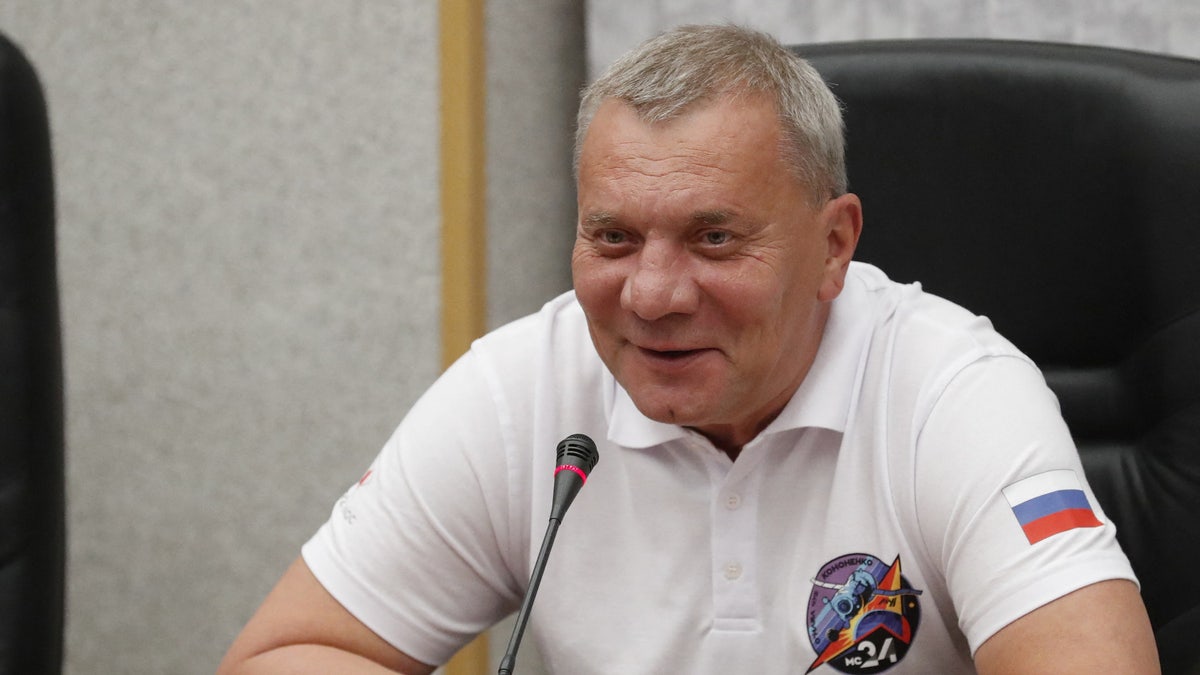China, Russia float idea for nuclear power on the moon: ‘want to upstage the United States’
China and Russia have suggested building a nuclear power plant on the moon, with the goal of finishing the project by 2035 and subsequently helping establish lunar settlements.
“The Russians have the world’s most mature space program, having accumulated a lot of firsts: First satellite launched in space (Sputnik); first [vessel] to the moon; and the first man, woman and a dog in space,” Rebekah Koffler told Fox News Digital. “They’ve got a lot of ‘know-how,’ [which] they’ve shared some of that know-how with China.”
“Russia and China want to upstage the United States by placing a nuclear reactor on the moon first,” Koffler said. “Whomever gets it first will dictate the terms of discourse to late comers, and that’s the strategic type threat.”
Yuri Borisov, head of Russia’s space agency Roscosmos, said on Tuesday Russia and China have considered the project, working jointly to determine its viability. Russia provided “nuclear space energy” expertise to the discussion.
CHINA COULD SEIZE THE MOON. WE NEED TO STOP THEM
“Today we are seriously considering a project — somewhere at the turn of 2033-2035 — to deliver and install a power unit on the lunar surface together with our Chinese colleagues,” Borisov said while speaking at a youth event.
“This is a very serious challenge…it should be done in automatic mode, without the presence of humans,” he added.
Borisov argued that other sources of energy, such as solar, would not provide enough electricity to power future lunar settlements – which nuclear power could.
Commercial and political interest in the moon has continued to ramp up as further technological developments bring what many would have once considered outlandish closer to reality.
NASA, SPACEX SET NEW TIME FOR CREW-8 LAUNCH
“Russia adheres to the Space Control type of doctrine, which means that in wartime, it will seek to deny the use of space to the U.S. and preserve its own access,” Koffler explained. “Will this doctrine extend to the moon? Likely.”
“Moon exploration is an integral part of Russia’s space policy and strategy and a top priority for Putin,” Koffler said. “Putin monitors very closely Russia’s space program because it has a myriad of implications for civilian and military related innovations.”

“It is also a huge matter of prestige for Russia, which considers itself a great power,” she added.
No nation can claim sovereignty over the moon or other outer space entities, per international space laws. The 1966 treaty, created in response to the space race, determined that nations could not claim property rights in space, but some worry that nations could ignore those laws and norms to advance their goals.
NASA UNLOCKS NEW SOUNDS OF THE UNIVERSE WITH PROJECT THAT TRANSFORMS COSMIC DISCOVERIES
“No sovereign country is supposed to plant that flag,” Defense Intelligence Agency’s John Huth, chief of the office of space and counterspace, told Fox News chief political anchor and executive editor of “Special Report” Bret Baier.
“But we’ve also seen China do things in the South China Sea where they’ve built islands and then have claimed some exclusion zone around it,” Huth said. “So, those are the things that we certainly want to keep an eye on.”

The moon presents a possible source for minerals: The Apollo missions between 1969 and 1972 brought 800 pounds of lunar samples back to Earth, containing trace amounts of rare Earth metals – key components to build computer chips and other technology that has become increasingly vital to everything from smartphones to military weapons.
Scientists remain skeptical that the minerals exist in significant amounts on the moon, but they acknowledge that a physical presence on the moon is the only way to determine the true geological makeup, underscoring the value of winning the race to establish a space base before rival nations.
FOUR NEW ASTRONAUTS VISIT INTERNATIONAL SPACE STATION WHERE THEY WILL STAY FOR 6 MONTHS
“One of the things we’ll do first when we establish a lunar base, whether it’s us or the Chinese, is really assess what’s there,” Huth said. “We’ve done that remote sensing part. We’ve brought materials back from the moon, as have the Chinese. So, one of the first things is trying to build a self-sustainable lunar base.”
The U.S. remains the sole nation to have put a human on the moon, but China last month announced plans to put a Chinese astronaut on the moon before 2030.

Russia’s nuclear space expertise has allegedly included a non-operational space-based weapon that could use nuclear energy to disable other satellites – something that Russian President Vladimir Putin has denied after reports emerged last month suggesting the existence of such a weapon.
“Our position is quite clear and transparent: we have always been and remain categorically opposed to the deployment of nuclear weapons in space,” Putin said. “Just the opposite, we are urging everyone to adhere to all the agreements that exist in this sphere.”
Speaking during a meeting with his defense minister, Sergei Shoigu, Putin noted that Russia has only developed space capabilities that “other nations, including the U.S. have.”
“We haven’t deployed any nuclear weapons in space or any elements of them to use against satellites or to create fields where satellites can’t work efficiently,” Shoigu said, instead alleging the U.S. had released the allegations about a weapon in order to drum up support in Congress for a Ukraine aid package.
The U.S. Space Force did not respond to a Fox News Digital request for comment by time of publication.
Fox News’ Bret Baier, Fox News Digital’s Amy Munneke and The Associated Press and Reuters contributed to this report.
Read the full article Here


